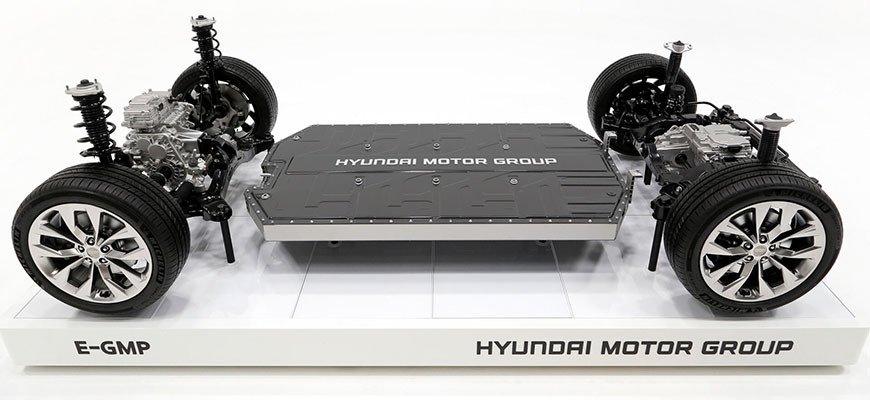
Well-known TF Securities analyst Ming-Chi Kuo spoke on “Apple Car” on Monday, saying Apple will work closely with Hyundai on an initial model that could lead to new vehicles built in partnership with General Motors and the European manufacturer PSA.
In a note to investors, Kuo corroborated recent reports of a possible partnership with Hyundai, saying the first “Apple Car” will be built on the company’s E-GMP electric vehicle platform. Hyundai Mobis takes the lead in component design and production, while Hyundai’s subsidiary, Kia, will be in charge of production in the United States.
Launched in December, E-GMP is a platform dedicated to the electric vehicle with battery (BEV) consisting of up to two motors, five-link rear suspension, integrated drive shaft, battery cells, charging system and others rolling chassis components. According to the company, the system has a maximum range of approximately 310 miles with a full charge and can be charged up to 80% in 18 minutes. Acceleration for a “high-performance” configuration is calculated to be between 0 and 60 mph in less than 3.5 seconds, with a speed limit of 160 mph.
Hyundai intends to use E-GMP as a foundation for a variety of models that will debut with both its flagship brand and the Kia brand this year.
Like past rumors, Kuo believes Apple will distribute parts manufacturing and assembly to established carmakers. Electric vehicles contain 40 to 50 times more parts than a smartphone, the analyst points out, suggesting that Apple will have to rely on the carmaker’s existing resources if it expects to create a functional car in time. The tech giant will not be able to create its own automotive supply chain, as it has done for devices like the iPhone, iPad and Apple Watch, without incurring significant delays.
“Apple’s deep collaboration with current automakers (Hyundai Group, GM and PSA) with extensive development, production and qualification experience will significantly reduce Apple Car’s development time and create an advantage of marketing, ”Kuo writes. “We believe Apple will leverage the current resources of automakers and focus on standalone software and hardware, semiconductors, battery-related technologies, shape and internal space format designs, innovative user experience and ecosystem integration. exist from Apple “.
Given a longer development delivery time, higher validation requirements, a more complex supply chain, and a “very different” sales and after-sales service, Kuo doesn’t expect the so-called “Apple Car” to hit the roads until by 2025 at least. This date is still considered aggressive for a technology company making its first foray into a new industry.
Apple is likely to market the vehicle as a “very tall” or “significantly superior” model than a standard electric vehicle.
If the first “Apple Car” is successful, Apple could cut GM and PSA’s regional partners, the latter of which produces cars with a variety of brands, including Peugeot, Citron and Opel.
Kuo throws cold water against rumors that long-term manufacturing partner Hon Hai, which goes into charging electric vehicles with its MIH platform, will secure assembly or wrapping orders for the “Apple Car”. Pan-International, Eson, Long Time Tech and G-Tech are also unlikely to enter the supply chain, according to the analyst.
Kuo’s predictions come amid “Apple Car” gossip. In early January, Hyundai confirmed, but later backtracked, that it was in negotiations to produce Apple’s rumored automotive project. More recently, a report last week states that South Korean carmaker executives are deliberating whether a partnership with the world’s largest technology company would be good for business.
“It’s not that working with Apple always produces good results,” said an unnamed executive Reuters last week. “Apple is the boss. They do their marketing, they do their products, they do their brand. Hyundai is also the boss. That doesn’t really work.”